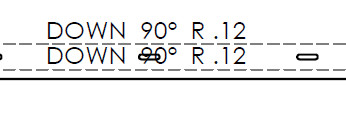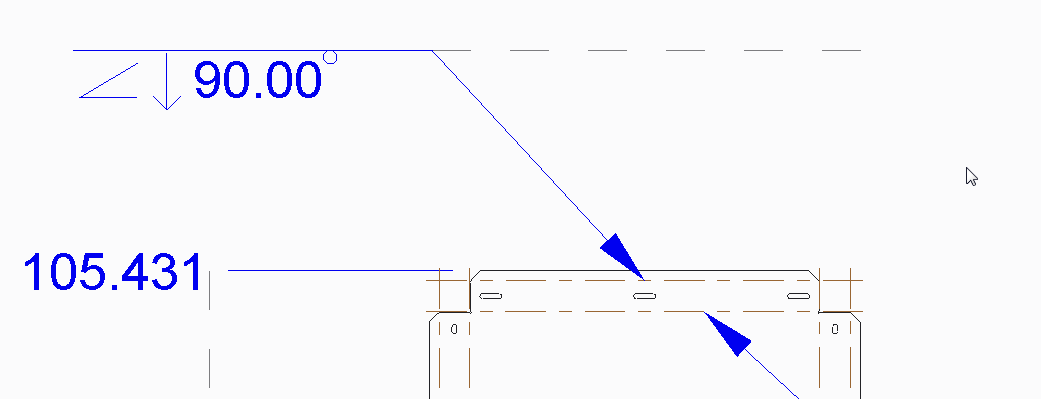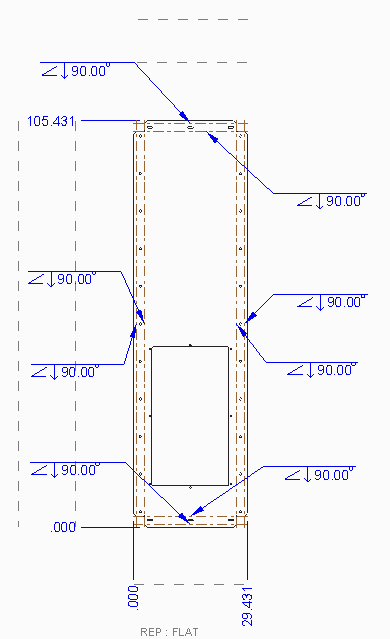Community Tip - When posting, your subject should be specific and summarize your question. Here are some additional tips on asking a great question. X
- Community
- Creo (Previous to May 2018)
- Creo Modeling Questions
- Re: Possible to get bend radius in default bend_no...
- Subscribe to RSS Feed
- Mark Topic as New
- Mark Topic as Read
- Float this Topic for Current User
- Bookmark
- Subscribe
- Mute
- Printer Friendly Page
Possible to get bend radius in default bend_note?
- Mark as New
- Bookmark
- Subscribe
- Mute
- Subscribe to RSS Feed
- Permalink
- Notify Moderator
Possible to get bend radius in default bend_note?
Working with SW, it brings in bend radius by default. Is there a way to set this up in Creo Parametric 2.0?


- Mark as New
- Bookmark
- Subscribe
- Mute
- Subscribe to RSS Feed
- Permalink
- Notify Moderator
You can make a parameter from just about anything and use them in notes.
If the part in the drawing is sheetmetal, or an assembly containing a sheetmetal part, you can pick this up as a pre-defined parameter.
- Mark as New
- Bookmark
- Subscribe
- Mute
- Subscribe to RSS Feed
- Permalink
- Notify Moderator
Thanks Antonius
Part of the problem is that being a manual process. Really trying to setup the annotation to just display the bend radius based on the feature properties. Automation is key in my company and having to add that string each time you call out a bend note would be prone to error.
In this case, there are 8x bend notes that could get missed by a designer but maybe I'm missing something?

- Mark as New
- Bookmark
- Subscribe
- Mute
- Subscribe to RSS Feed
- Permalink
- Notify Moderator
I know there is a lot of emphasis put on automation by many companies and PTC has strived to help in this regard with built-in quality checks.
I am an old school designer that doesn't rely on these tools but I understand the reason for it.
I also do not provide flat patterns to my shops since they know much better than I how to develop a flat pattern that meets their shop's needs.
I have not seen anything in Creo that consolidates multiple instances into a more concise callout with the exception of patterns and BOM balloons. I'm sure there is a report function that can do this with a little development. maybe hole tables could be adapted into what you are looking for. Obviously, the data is there, but how to extract it consistently (?)
- Mark as New
- Bookmark
- Subscribe
- Mute
- Subscribe to RSS Feed
- Permalink
- Notify Moderator
Hello,
Could you post a sample model with drawing?
I guess since as said "the data is there", there's got to be an automated way to show it.
- Mark as New
- Bookmark
- Subscribe
- Mute
- Subscribe to RSS Feed
- Permalink
- Notify Moderator
Example attached.
I was able to find configs for altering the standard bend note from this thread
I was successful adding a parameter at the end of config value:
smt_bend_notes_order
default value - &type&direction&angle *
works - &type&direction&angle &PARAMETER*
I was able to input SMT_DFLT_BEND_RADIUS, but the problem is when there are multiple bend rads or when a user deviates from bend table.
So, if there is a way to pull in the dim value of the varying radii, then this could work.

